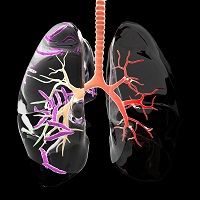Article
Metformin: Multitasking Medicine
Author(s):
Tuberculosis (TB) kills 1.43 million people annually. Effective TB treatment is challenging, due to the mycobacterial cell wall's unusual structure and chemical composition -- the wall repels drugs efficiently and renders many antibiotics ineffective. An article in Science Translational Medicine describes a drug that may have potential to alter host response to TB: the antidiabetic agent metformin.

Tuberculosis (TB) kills 1.43 million people annually. Effective TB treatment is challenging, due to the mycobacterial cell wall’s unusual structure and chemical composition—the wall repels drugs efficiently and renders many antibiotics ineffective. Mycobacterium tuberculosis evades the host’s innate and adaptive immune responses. Researchers constantly look for better ways to treat this major public health problem. Therapeutic modulation of host cell responses might improve pathogen eradication without the accompanying microbial resistance that has plagued conventional drugs. An article in the November issue of Science Translational Medicine, describes a drug that may have potential to alter host response to TB: the antidiabetic agent metformin.
Metformin appears to bolster protective host immune responses. The researchers look at its effects at the cellular level. Metformin appears to be protective pursuant to increased host cell production of mitochondrial reactive oxygen species (mROS) and increased acidification of mycobacterial phagosome. Research has shown that macrophages use mROS produced as mitochondria are recruited to phagosomes to destroy intracellular bacteria.
TB creates a chronic inflammatory state. Metformin also appears to be anti-inflammatory, employing activation of adenosine monophosphate—activated protein kinase (AMPK). AMPK reduces inflammation and suppresses intracellular growth of Mycobacterium tuberculosis.
Metformin’s effects extend to drug-resistant Mycobacterium tuberculosis strains. Animal studies have shown that metformin ameliorates lung pathology, reduces chronic inflammation, and enhances the specific immune response and the efficacy of conventional TB drugs.
Metformin has been used in humans who have TB. Two studies have demonstrated improved control and decreased disease severity. One retrospective study determined that diabetic patients who had comorbid TB and were treated with metformin had a significantly lower risk of death than those who did not receive metformin.
The World Health Organization places a priority on finding new therapies for TB. Research associated with metformin indicates it is a promising adjunct therapy. This research also contributes to our body of knowledge about how this drug works in the body. The next steps in the research paradigm are to identify the optimal dose and to determine if metformin may prevent TB infection.




